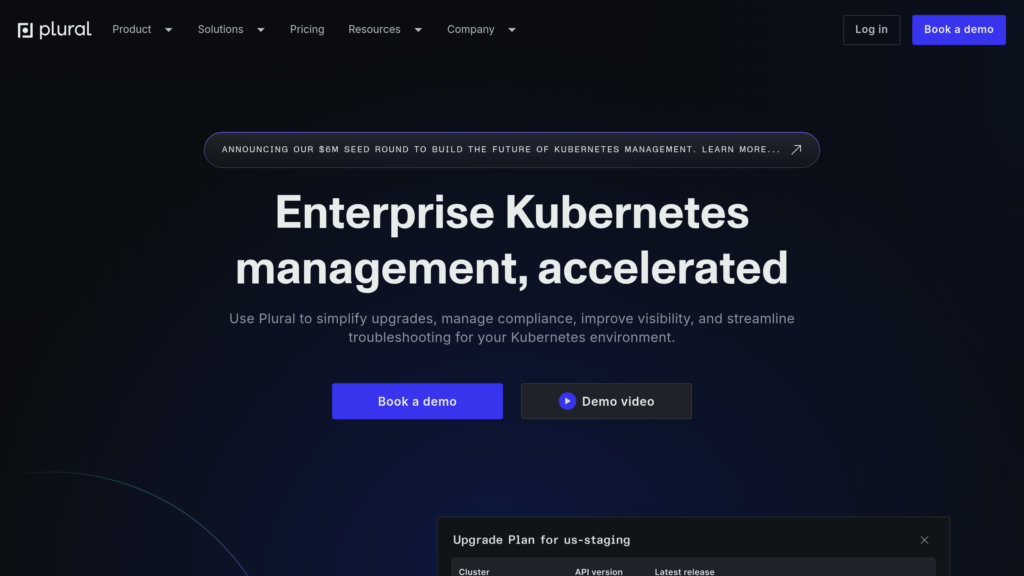Plural.sh
Kubernetes fleet management with GitOps automation and self-service provisioning
Introduction
What is Plural.sh?
Plural.sh serves as an advanced Kubernetes orchestration platform that streamlines large-scale fleet management. It integrates continuous deployment, infrastructure-as-code practices, and cluster administration within a secure, agent-driven pull framework. The platform automates GitOps processes, enables self-service resource allocation, and delivers comprehensive cluster analytics, supporting diverse environments including multi-cloud, hybrid, and on-premises deployments. Its design prioritizes security by limiting direct cluster exposure while empowering teams to handle Kubernetes operations efficiently at enterprise scale.
Key Features:
• Enterprise GitOps Automation: Streamlines deployment of Helm charts, Kustomize configurations, and YAML services across multiple Kubernetes clusters with complete audit trails and configuration drift monitoring
• Secure Pull-Based Architecture: Implements a security-first approach where clusters independently fetch configurations from the control plane, minimizing network vulnerabilities and enabling secure scalability
• Infrastructure-as-Code Integration: Offers native compatibility with Terraform, Pulumi, and Ansible through Kubernetes CRDs, facilitating complex infrastructure orchestration
• Developer Self-Service Portal: Allows engineering teams to deploy Kubernetes clusters and infrastructure elements using approved templates and automated PR workflows
• Unified Monitoring Dashboard: Delivers a secure interface with single sign-on authentication and authorization proxy for real-time fleet observability and issue resolution
• Automated Code Review System: Generates pull requests through intuitive UI workflows while maintaining rigorous GitOps compliance and change traceability
Use Cases:
• Large-Scale Kubernetes Orchestration: IT operations teams can oversee extensive Kubernetes deployments with automated deployment pipelines, monitoring systems, and security protocols
• Accelerated Infrastructure Deployment: Development teams can rapidly provision clusters and necessary components through automated processes, speeding up project timelines
• Cloud Infrastructure Automation: Platform engineering groups can manage Terraform and similar IaC workflows directly within Kubernetes environments, minimizing operational overhead
• Enterprise GitOps Implementation: Establishes robust, scalable GitOps practices with automatic configuration validation and comprehensive audit capabilities for Kubernetes applications
• Hybrid Cloud Management: Enables consistent deployment and administration across public cloud platforms, private data centers, and edge computing locations
